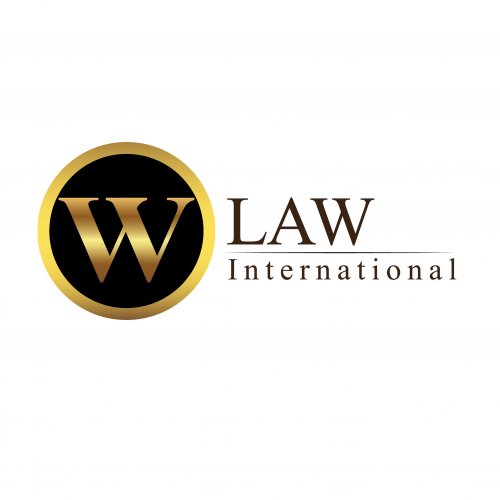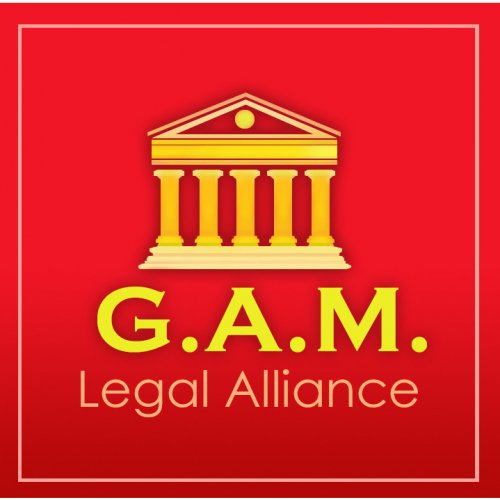Best Financial Services Regulation Lawyers in Thailand
Share your needs with us, get contacted by law firms.
Free. Takes 2 min.
Or refine your search by selecting a city:
List of the best lawyers in Thailand
Legal guides written by Smart Legal Solutions:
- Main Legal Measures to Protect Foreign Investment in Thailand
- The importance of the geographical indications for the Thai economy
Legal guides written by SIAM LEGAL INTERNATIONAL:
- Defamation Laws in Thailand: Criminal Charges and Civil Suits
- The State of Thailand’s Long-Term Resident (LTR) Visa Program in 2025
- The Penalties Of Not Filing Your Income Tax Return As A Foreigner In Thailand
Thailand Financial Services Regulation Legal Articles
Browse our 1 legal article about Financial Services Regulation in Thailand written by expert lawyers.
- Thai Legal Framework for Cryptocurrencies
- Technology, investment, and money have all been fundamentally altered by cryptocurrencies. Countries all throughout the globe struggle to design legal regimes that safeguard consumers while fostering innovation as these digital assets develop. Thailand distinguishes itself in this sense as it has one of the most thorough regulatory frameworks regarding cryptocurrencies... Read more →
About Financial Services Regulation Law in Thailand
Financial Services Regulation in Thailand encompasses the legal framework and policies governing financial markets and institutions within the country. This includes banks, insurance companies, securities firms, and other entities involved in delivering financial services. The primary objective of financial services regulation is to ensure the stability of the financial system, protect consumers, and prevent financial crimes such as fraud and money laundering. Thailand's regulatory environment is managed by key institutions such as the Bank of Thailand, the Securities and Exchange Commission, and the Office of Insurance Commission, which are responsible for overseeing the implementation and enforcement of relevant laws and regulations.
Why You May Need a Lawyer
There are several situations in which you might require legal help in the field of Financial Services Regulation in Thailand. Common scenarios include:
- Establishing a financial entity such as a bank or insurance company and ensuring compliance with local laws.
- Dealing with regulatory audits or investigations conducted by financial authorities.
- Handling disputes or litigation involving financial services entities, whether as a provider or consumer.
- Navigating changes in regulatory requirements and ensuring ongoing compliance.
- Encountering issues related to securities and investment laws, such as insider trading allegations.
- Addressing complex cross-border financial transactions and ensuring adherence to both local and international regulations.
Local Laws Overview
Thailand's financial regulatory landscape is shaped by a series of laws and regulations aimed at ensuring a robust financial services sector. Key aspects include:
- Banking Laws: Governed by the Financial Institutions Business Act and enforced by the Bank of Thailand, focusing on the regulation and supervision of banks and financial institutions.
- Securities Laws: The Securities and Exchange Act, managed by the SEC, oversees activities related to securities trading, market integrity, and investor protection.
- Insurance Laws: The Insurance Act regulates insurance businesses, with oversight provided by the Office of Insurance Commission, ensuring solvency and fair practice within the industry.
- Anti-Money Laundering: The Anti-Money Laundering Act requires financial institutions to implement measures to detect and prevent money laundering activities.
- Consumer Protection: Various laws and regulations ensure the protection of consumers in financial transactions, promoting transparency and fairness.
Frequently Asked Questions
What is the role of the Bank of Thailand in financial regulation?
The Bank of Thailand is primarily responsible for maintaining monetary stability, supervisory oversight of financial institutions, and ensuring the soundness of the banking system.
What should I do if I suspect financial fraud?
If you suspect financial fraud, you should report it to the relevant regulatory authority, such as the Securities and Exchange Commission or the Bank of Thailand, for further investigation.
Do foreign financial institutions need approval to operate in Thailand?
Yes, foreign financial institutions must obtain the necessary licenses and comply with local regulations to operate legally in Thailand.
How can I ensure my financial services business complies with Thai regulations?
Consulting with a legal expert who specializes in financial services regulation can help ensure compliance with all applicable laws and regulatory requirements.
What are the penalties for non-compliance with financial services regulations?
Penalties can include fines, suspension of licenses, and other legal actions depending on the severity of the non-compliance.
Are digital currencies regulated in Thailand?
Yes, digital currencies are regulated under the Emergency Decree on Digital Asset Businesses, with oversight by the Securities and Exchange Commission.
What legal protections are in place for consumers in financial services?
Various regulatory requirements ensure transparency and fairness, such as the Deposit Protection Agency Act, which protects consumers' deposits in financial institutions.
Can I appeal a regulatory decision made against my financial institution?
Appeals can generally be made through the relevant regulatory body, often requiring legal representation to navigate the process effectively.
How is insurance regulated in Thailand?
Insurance companies are regulated under the Insurance Act and overseen by the Office of Insurance Commission to ensure compliance with industry standards.
What steps should be taken if a financial service provider breaches contract terms?
Seek legal advice to help navigate the breach, assess potential remedies, and possibly initiate litigation or settlement discussions.
Additional Resources
For further guidance and resources on financial services regulation, consider reaching out to the following organizations:
- Bank of Thailand: Oversees monetary policy and financial institution supervision.
- Securities and Exchange Commission (SEC): Responsible for the regulation of securities markets and protection of investors.
- Office of Insurance Commission (OIC): Regulates the insurance industry with a focus on consumer protection and market stability.
- Anti-Money Laundering Office (AMLO): Enforces anti-money laundering regulations and policies.
Next Steps
If you require legal assistance in the realm of Financial Services Regulation in Thailand, consider these steps:
- Identify Your Legal Needs: Clearly define the nature of your legal issue to determine what kind of expertise you require.
- Consult a Specialized Lawyer: Engage with a legal professional or firm that specializes in financial services regulation to gain tailored advice and representation.
- Gather Documentation: Collect all relevant documents related to your case to provide a comprehensive overview for your lawyer.
- Explore Alternative Dispute Resolution: Consider options like mediation or arbitration for resolving disputes without litigation.
Lawzana helps you find the best lawyers and law firms in Thailand through a curated and pre-screened list of qualified legal professionals. Our platform offers rankings and detailed profiles of attorneys and law firms, allowing you to compare based on practice areas, including Financial Services Regulation, experience, and client feedback.
Each profile includes a description of the firm's areas of practice, client reviews, team members and partners, year of establishment, spoken languages, office locations, contact information, social media presence, and any published articles or resources. Most firms on our platform speak English and are experienced in both local and international legal matters.
Get a quote from top-rated law firms in Thailand — quickly, securely, and without unnecessary hassle.
Disclaimer:
The information provided on this page is for general informational purposes only and does not constitute legal advice. While we strive to ensure the accuracy and relevance of the content, legal information may change over time, and interpretations of the law can vary. You should always consult with a qualified legal professional for advice specific to your situation.
We disclaim all liability for actions taken or not taken based on the content of this page. If you believe any information is incorrect or outdated, please contact us, and we will review and update it where appropriate.
Browse financial services regulation law firms by city in Thailand
Refine your search by selecting a city.

















